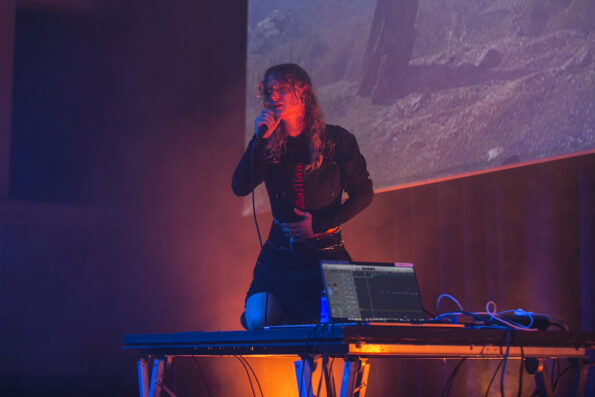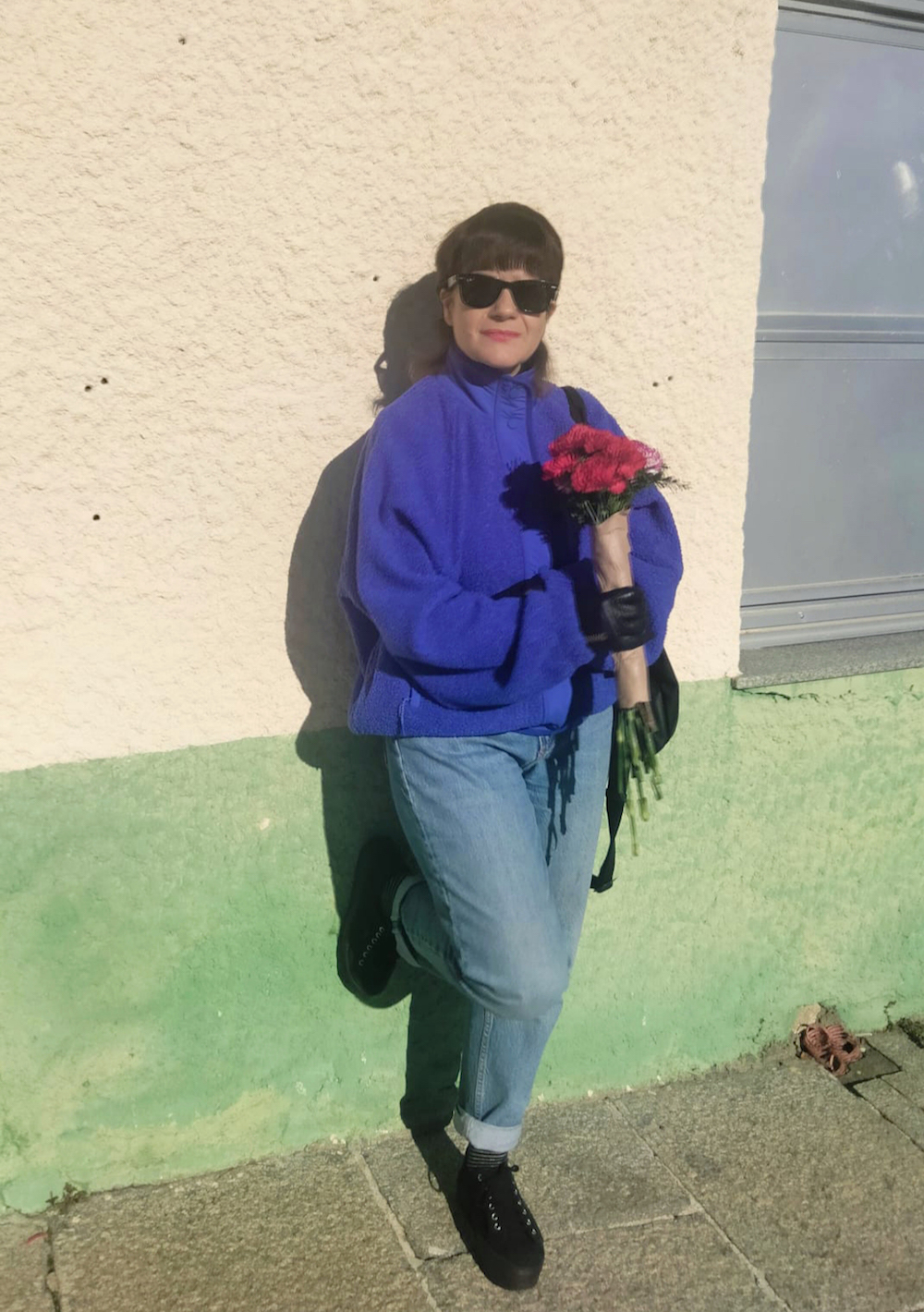Search
To search for an exact match, type the word or phrase you want in quotation marks.
A*DESK has been offering since 2002 contents about criticism and contemporary art. A*DESK has become consolidated thanks to all those who have believed in the project, all those who have followed us, debating, participating and collaborating. Many people have collaborated with A*DESK, and continue to do so. Their efforts, knowledge and belief in the project are what make it grow internationally. At A*DESK we have also generated work for over one hundred professionals in culture, from small collaborations with reviews and classes, to more prolonged and intense collaborations.
At A*DESK we believe in the need for free and universal access to culture and knowledge. We want to carry on being independent, remaining open to more ideas and opinions. If you believe in A*DESK, we need your backing to be able to continue. You can now participate in the project by supporting it. You can choose how much you want to contribute to the project.
You can decide how much you want to bring to the project.
 Sarahsson en el Festival She Makes Noise. La Casa Encendida
Sarahsson en el Festival She Makes Noise. La Casa EncendidaThe big announcement by the current Culture Minister Ernest Urtasun about the need to decolonize the museum has caught many people by surprise. Some people are already criticizing the decision while people of other genders think it is a great idea and that it at least should be done in large collections such as the Prado and Reina Sofia. On a small scale, some of us work in this vein without being legitimized by the administration. Highlighted in the editorial text as one of the most important days of the She Makes Noise festival[1]The multidisciplinary She Makes Noise Festival works to promote experimental electronic music and contemporary audiovisuals, visibilizing women creators and trans identities. It is curated by the … Continue reading, the night of October 20, 2017, was a day to look beyond the European club scenes and 20-century electronic rhythms (that is, house and techno). Carrying out an exercise in self-criticism is important and, in a festival with such specific content and informed by feminism, it is important to not leave out those who do not see themselves within a binary gender. A desire to move towards a cyborg and non-gender society, but on the way there, to continue working with a gender perspective, expanding it, diversifying and bringing together trans identities under that gender-non-gender. She, he, them have always been there/here, though not so their visibility. I have been asked many times why there are so many people from the LGTBQ+ collective dedicating themselves to electronic music. Obviously, I am not clear about it but my theory responds to the marginality that the electronic scene has had, understood as a rara avis despite the fact that this music is contemporary, just as trans and fluid identities are also contemporary. The participation of trans artists started in 2016 and has been constant since then despite criticism and lack of sisterhood by some women and associations, but that is another, somewhat sadder story. We try to work with a visible, inclusive language together with institutions. If it is not named it does not exist and this is the best way to organically introduce not only diverse music but also those who create it. The benefits are in the new faces, the young people interested in each event. In 2016, we were light years away from the Trans Law and there was a total lack of references. That year we had the participation of local artist LaNoche, a pioneer who was never seen as such. Her intention was to transfer the most elegant environments of the club to the patio of La Casa Encendida, generating a different experience for the stormy hours of dawn in which they usually are held, and this point was important in opening electronic music to new audiences and to create new experiences. 2017 began with Elysia Crampton, originally from the Cochabamba region in Bolivia, her first performance in Madrid. A fluid identity that was then read as a trans woman and which in the album revindicated the indigenous-Aymara heroine Bartolina Sisa, who fought against the oppression of the Spanish conquistadors back in 1782, was murdered, and became a reference and a symbol for indigenous women. Porous and permeable in traditional and dark sounds, a few years later, the artist formerly known as Elysia Crampton presented herself with her Aymara name and identity, Chuquimamani-Condori, with a multidisciplinary artistic project that also included installations and video with her brother, the musician Joshua Chuquimia Crampton. In 2019, Juliana Huxtable performed, another turning point at the festival. It was the fifth anniversary and a group of young people swarmed the DJ at the end of her performance because she was the star and they had never seen her here before. It is beautiful how the artists have been finding their space in a city in which they were not previously programmed. Since then, Juliana Huxtable’s work has covered various topics and areas beyond electronic production, dealing with the Internet, the body and the text. She is the author of several books and contributor to numerous publications based on her queer activism. In her set, she explored the complexity of today’s society, using dance as a form of critical thinking in the face of sociopolitical reality. Originally from Texas, she is not the only trans artist who has fled from there, and is now based in New York where she organizes the famous Shock Value parties in a Brooklyn neighborhood. In her sessions, she challenges the conventional structures of club music by mixing all types of genres, from the most eccentric bass to the most fractured pop with R&B melodies and rhythms built with samples and voices. Currently, Huxtable has launched the experimental group Tongue In The Mind, with a first release through the PAN record label in the city of Berlin, where like almost everyone else, she spends most of the year. There, at the end of 2023, she held the USSYPHILIA exhibition at the Fotografiska International Photography Center.
With COVID restrictions, we continued to celebrate the festival in 2020 and 2021, the latter with Ziùr and Slim Soledad. The announcement of the double session for the night of October 22, 2021 was: “electronic music serves as a channel for the dissemination of the works of a good group of trans artists who feel close to these practices outside of current laws.” Ziùr’s show was full of sensitivity and hard noise, presenting her album Antifate for the first time in Spain, a whole concept of speculative fictions with which the German artist borders on fantasy and science fiction, proposing a trip to the land of Cockaigne, a medieval utopia where work is not necessary, food is abundant and wine flows freely, an escapist fantasy for the peasants of the Middle Ages. From there, we left without leaving, from the patio of La Casa Encendida to Slim Soledad. “I am a black and Brazilian transvestite” is how this multidisciplinary artist from São Paulo, Brazil, based in Berlin, known as a member of the queer collective Chernobyl, identifies herself. She started as a DJ a few years ago playing funk, but since then her sets and staging have evolved and she has become radicalized towards performances that are challenging and wild, with concepts such as martyrdom and related to bodies that mutate and transform. From the European underground, this was also her first performance in Madrid. She Makes Noise 2022 included the live performance of Lotic, another non-binary artist from Texas who moved to Berlin because of the anti-racial and misogynistic cultural and social policies that the United States is adopting. Her commitment to research, the evolution of electronic sounds and the Afro-descendant and queer community are the themes on which the work of J’Kerian Morgan (aka Lotic) has always been based. With a name that means from, relative to, or living in water, she presented her new and liberating album, Water, adding her own vocal intensity to electronic experimentation, and reflecting on the construction of gender, racial and migrant reality, and globalization. Her process, hormones and the precariousness of the sector, even in a city like Berlin, have meant that Lotic is now in a precarious situation, so we support her very strongly from these pages. Dissidents from other latitudes also find their place, such as x/o, of Vietnamese ancestry and under the pseudonym Veron Xio, whose practice is based on the disruption of everything established around gender and the construction of binarism, exploring on an audiovisual level the diversity beyond duality and emotions. Building something new sometimes contains a component of destruction. x/o defines her journey with her own transition process, showing how everything is connected and it is impossible to separate the person from their work. Her album Chaos Butterfly plays with deep and disturbing voices to which she adds jungle percussion, trip hop drums, broken and distorted rhythms and metal bands. On a visual level, her work has references to science fiction, such as Dune, anime and video games such as the classic Final Fantasy. Speculative fictions take the lead in these audiovisual proposals because other worlds are possible and electronic music creates these possibilities. In the last edition to date, October 2023, the performance of Sarahsson, an artist, composer, electronic producer, performer, musical inventor and DJ from Bristol, was a knockout. Her debut LP The Horgenaith is packed with vocal experimentation blurring the lines between genres. The harmony and different textures of her voice make her shows take on a theatrical and unusual tone. In her live performances she uses the daxophone, a self-made bow instrument that she fuses with field recordings, whispers and different vocal and sound textures that induce a journey through fictional narratives. This was her debut in Spain.
The risks in programming, the responsibility when sharing content that SHE opens up, have become increasingly fluid and plural. In this way we will continue with all the enthusiasm to work for you.
Playlist: A Journey through Dissidence
[Feaured Image: Sarahsson. She Makes Noise Festival. Photo @LaCasaEncendida ©Estudio Perplejo]
| ↑1 | The multidisciplinary She Makes Noise Festival works to promote experimental electronic music and contemporary audiovisuals, visibilizing women creators and trans identities. It is curated by the Playtime Audiovisuals platform, with Natalia Piñuel Martín as responsible for the music and activities programming and Enrique Piñuel Martín for the film series. The festival has been based in La Casa Encendida in Madrid since 2015. |
|---|

Natalia Piñuel Martín is an art historian, cultural researcher and curator. Co-founder of the Playtime Audiovisuales platform based in Madrid since 2007 from where they develop projects for museums and cultural spaces such as MUSAC (León), DA2 (Salamanca), Espacio Fundación Telefónica and Museo Centro de Arte 2 de Mayo (Madrid), AECID or the Cervantes Institute. She has been programming music & activities for the She Makes Noise Festival at La Casa Encendida since 2015. She writes regularly in the media and gives classes and talks on contemporary artistic practices and gender issues. She has curated exhibitions for the MEIAC (Badajoz) and audiovisual and performance cycles for the Women’s Institute and the Her Festival. She currently directs and hosts the Derivas podcast. She is in her second year as a doctoral student at USAL. Photo: Enrique Piñuel.
"A desk is a dangerous place from which to watch the world" (John Le Carré)